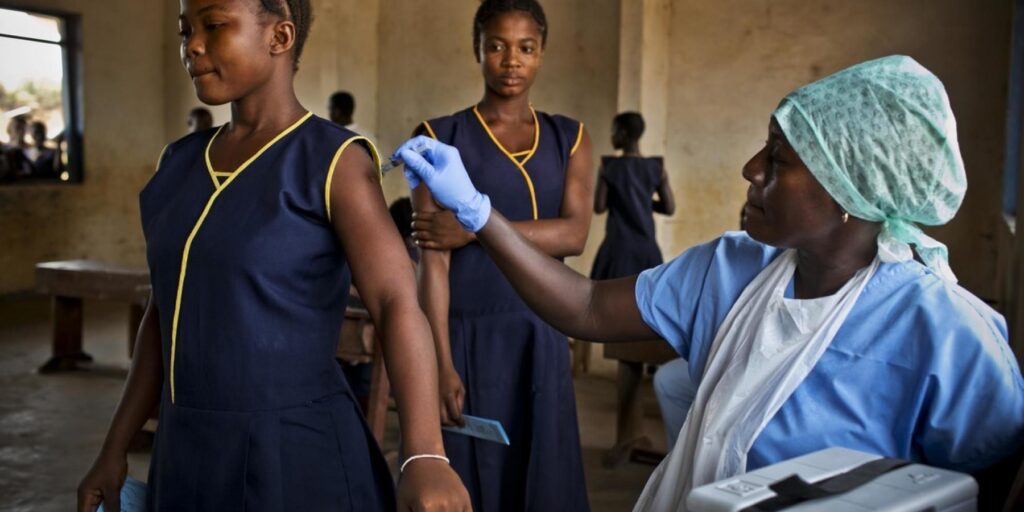Steps to Prevent Cancer
Table of Contents

Ditch the Smokes
Every puff of tobacco contains 250 harmful chemicals. Almost 70 of them are carcinogenic. And it isn’t just lung cancer. Cigarettes have been linked to 12 other types of cancer, including stomach, bladder, kidney, mouth, and throat cancer. The sooner you come to a halt, the better. Consult your doctor for help quitting smoking.
Eat More Broccoli
Fruits and vegetables have anti-cancer properties because they are high in nutrients and fiber while being low in fat. Broccoli, Brussels sprouts, cabbage, kale, watercress, and other cruciferous vegetables are good options. They protect against DNA damage, which can cause cells to become cancerous. Alternatively, consume colorful berries. According to research, they contain cancer-fighting chemicals that protect cells from damage.
Trim a Few Pounds
Extra weight around your midsection may increase your risk of developing cancer, particularly of the breast, colon, uterus, pancreas, esophagus, and gallbladder. According to researchers, one reason could be that fat cells release substances that promote the growth of cancer cells.
Go Easy on Alcohol
If you consume too many martinis per day, your chances of developing cancer increase. Cancers of the mouth, breast, liver, esophagus, and other organs have been linked to alcohol consumption. The more you drink, the greater the risk. If you must consume alcohol, do so in moderation. Women should limit themselves to one drink per day, while men can have up to two.
Cut Back on Hot Dogs
Before you throw some on the grill, think twice. According to research, processed meats such as hot dogs, bacon, and sausage contain chemicals known as nitrites and nitrates, which have been linked to cancer. Furthermore, research suggests that consuming too much red meat, such as steak and burgers, may pose a long-term risk of colorectal cancer. Choose chicken breast or fish as safer alternatives for your backyard cookout.
Get Off the Couch
Do you spend too much time relaxing? Another reason to get moving is cancer prevention. Exercise combats obesity and lowers hormone levels such as estrogen and insulin, both of which have been linked to cancer. On most days of the week, aim for 30 minutes of aerobic exercise (the kind that gets your heart pumping).
Put on Sunscreen
While baking in the sun may give you a healthy-looking tan, UV rays cause skin damage that can lead to cancer. Apply sunscreen before going outside because you can burn in 15 minutes. Choose a broad-spectrum sunscreen with an SPF of 30 or higher. Reapply after swimming or sweating. Wear a wide-brimmed hat and wraparound sunglasses when you’re out in the sun.
Practice Safer Sex
Sexually transmitted diseases (STDs) aren’t the only thing to be concerned about during unprotected sex. Some of these infections may also increase your chances of developing cancer. Human papillomavirus (HPV) types 16 and 18 cause approximately 70% of cervical cancers. Certain types of hepatitis can lead to liver cancer. To be safe, always use a latex condom when having sex.
Get Vaccinated
Think beyond your annual flu shot when it comes to vaccines. Some can also protect against cancer. Cervical, vulvar, vaginal, and anus cancers are all prevented by certain HPV vaccines. Vaccination is recommended between the ages of 9 and 26. Hepatitis B vaccine protects against the virus that causes liver cancer. It is included in the childhood vaccination schedule.
Avoid Toxic Chemicals
Carcinogens are chemicals that cause DNA damage in your cells and increase your risk of cancer if you touch, eat, or breathe them in. Some people come into contact with asbestos, radon, and benzene at work or at home. Weedkillers, plastics, and some household products may also contain hazardous chemicals. You can’t avoid every chemical, but you can be aware of which ones are in the products you use and, if possible, switch to safer alternatives.
Know Your Family History
You didn’t just get your mother’s eyes or your father’s grin. They may also have discussed their chances of contracting diseases such as cancer. Some of the genes that parents pass down to their children are flawed. They do not repair damaged DNA as well as they should, allowing cells to become cancerous. Learn about your family’s medical history and consult with your doctor to see if a genetic test is right for you.
Stay Up to Date With Screenings
Cancer screening tests detect it early, sometimes even before it develops. Polyps in the colon and rectum are frequently discovered during a colonoscopy before they develop into cancer. The Pap test detects cancerous and pre-cancerous cells in a woman’s cervix. Mammograms and low-dose computed tomography (LDCT) scans are used to detect early breast and lung cancers. Ask your doctor when you should start getting these tests and how frequently you should get them.
Take Meds if You Need Them
Some drugs reduce your chances of developing certain cancers. Tamoxifen (Nolvadex, Soltamox) and raloxifene (Evista) can lower the risk of breast cancer, but they can cause serious side effects. Aspirin may help prevent colorectal and prostate cancer. Be wary of supplements that claim to keep you cancer-free. Many have yet to be proven, and some have negative side effects.